The Dead Poets Society was a film my father owned on VHS, but I never felt compelled to watch it. It wasn’t until more than thirty years later—after seeing it referenced in numerous cinematic essays on filmmaker YouTube channels—that my curiosity was finally sparked.
Every now and then, I enjoy watching an old film—not just to appreciate the texture of film emulsion, but also to explore the profound themes explored in past eras. I was genuinely surprised to discover how precisely this movie captured a theme that resonates so deeply with me, leaving me with a swirl of emotions.
A few words on The Dead Poet Society
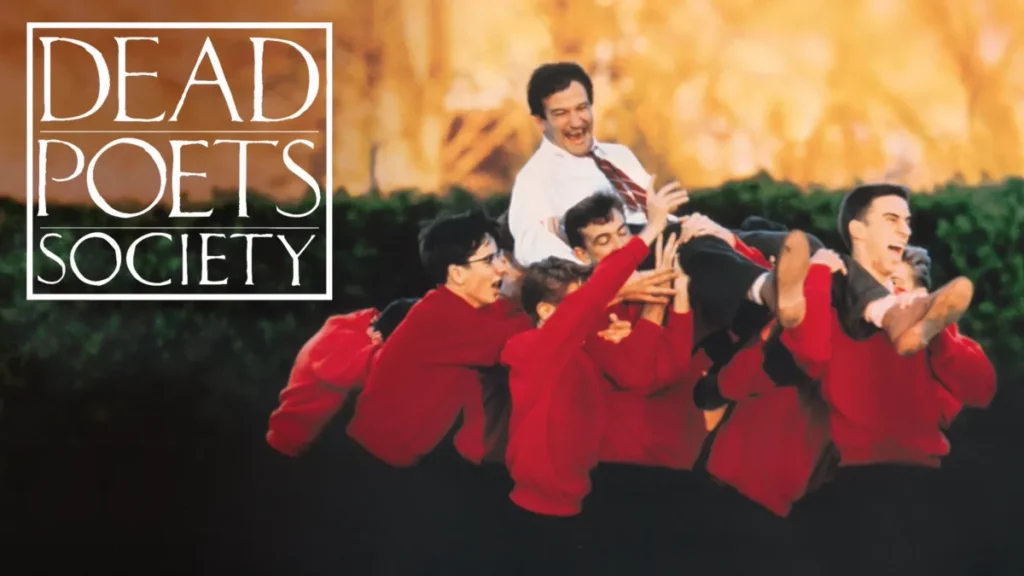
Released in 1989, Dead Poets Society is an American coming-of-age drama directed by Peter Weir and written by Tom Schulman. Set in 1959 at the fictional and prestigious Welton Academy, the film follows an English teacher—portrayed by Robin Williams—who ignites a passion for poetry in his students and encourages them to think for themselves.
The themes
Dead Poets Society” is a film rooted in existentialism, exploring the idea that to truly live, one must break free from external expectations.
Though its message is clear and direct, the use of poetry and poignant quotes adds a deeper, more resonant layer to its themes.
The story’s tragic ending for those driven by passion serves as a powerful counterbalance, highlighting the risks and sacrifices on the path toward authenticity and moral integrity.
1. Individualism vs. Conformity
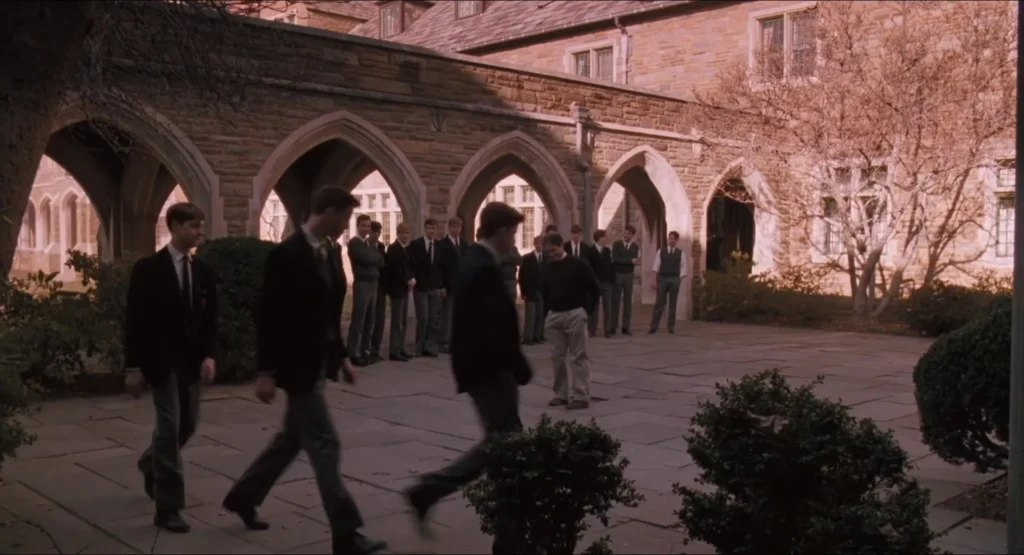
At the heart of the film is the battle between thinking for oneself and blindly following rules. Welton Academy represents structure, discipline, and societal expectations. Mr. Keating, on the other hand, encourages the boys to find their own voice—even if it means going against everything they’ve been taught.
For society and an institution like a school to work at large, most people have to accept the framework settle by these structures. One must believe in the illusion for the collective narrative to make sense and harmony to take place.
However, conformity also represents a denial of individuality and destiny (in exchange for security and a shared destiny). Every human being is shaped by unique genetics, experiences, and intrinsic preferences—these aren’t malleable constructs, but deeply embedded aspects of one’s biology and history.
If you were to ask children today what they dream of doing with their lives, many would likely say they want to become a YouTuber. This is no surprise, as a YouTuber is often someone who genuinely expresses their passion, even if sometimes they do seek a specific niche or conforms to his audience.
However, this idea contrasts sharply with what parents might envision for their children—noble and less risky professions like becoming a doctor, or something similarly grounded in societal expectations. But think for a moment about your feelings when you visit the doctor. Is that how you would want every day of your life to feel? Probably not.
The point isn’t necessarily about choosing something original, but about being true to oneself when it comes to one’s aspirations and not to be afraid of doing something singular, because this is exactly where value is created, in idiosyncratic innovation and originality.
2. The Power of Art and Poetry
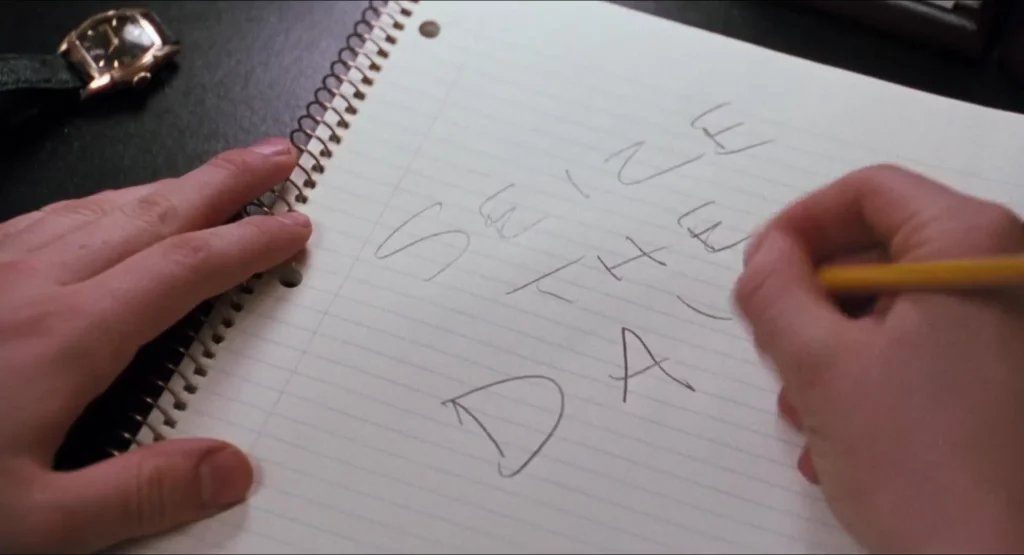
In the movie, poetry becomes a gateway for self-expression, emotional freedom, and truth. It’s not about reciting old lines—it’s about feeling something real and using it to shape our life.
Poetry, like art, brings deep truths and emotions to the surface; it serves as a catalyst for inspiration and conveys messages that break through the filters of conformity’s illusion.
Poetry is about making someone feel the beauty and resonance of themes through intuition and emotion, rather than intellect. In contrast to the intellect, which would categorize the poem within a mathematical or scientific framework, art and poetry are about the experiences we can feel but cannot measure.
I went to the woods because I wished to live deliberately, to front only the essential facts of life, and see if I could not learn what it had to teach, and not, when I came to die, discover that I had not lived. I did not wish to live what was not life, living is so dear; nor did I wish to practise resignation, unless it was quite necessary. I wanted to live deep and suck out all the marrow of life, to live so sturdily and Spartan-like as to put to rout all that was not life, to cut a broad swath and shave close, to drive life into a corner, and reduce it to its lowest terms… Henry David Thoreau
3. Mortality and the Impermanence of Life
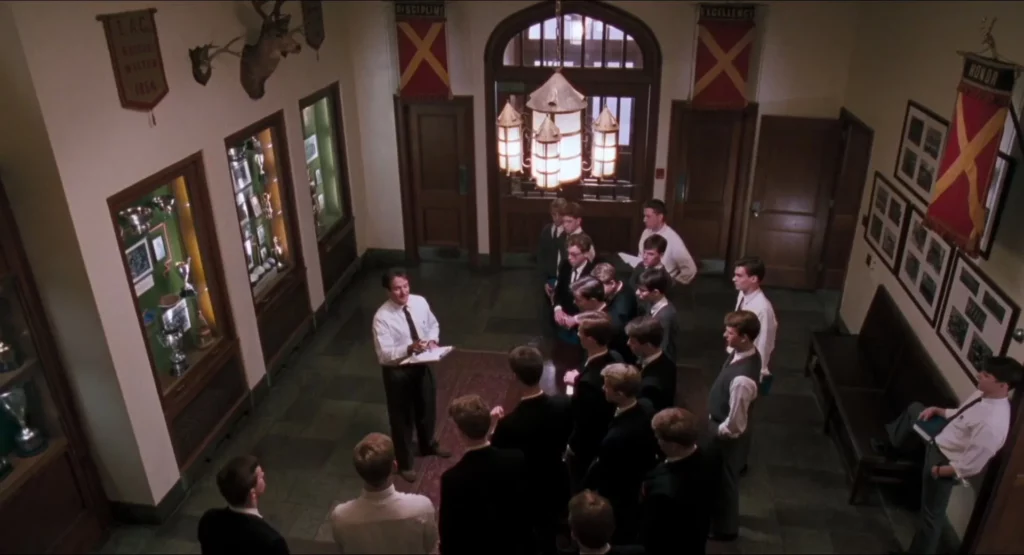
Carpe Diem—seize the day—isn’t just about living wildly. It’s about living consciously, knowing that time is limited. The boys are urged to look at the faces of the dead and realize: they were once full of hope too.
I think this is the biggest lie we are thought in society, to live like things don’t have an end. Everything is ephemeral, we are all bound to the same fate which is to ultimately move on from this experience.
That’s precisely why accumulating material possessions and living in a confined, artificial environment as if we’ll live forever is madness. Because safety without growth or struggle kills the soul and the adventure of existence. Even a goldfish can understand this concept and desires more than a life in a fishbowl.
O me! O life!… of the questions of these recurring; of the endless trains of the faithless… of cities filled with the foolish; what good amid these, O me, O life?” “Answer. That you are here — that life exists, and identity; that the powerful play goes on and you may contribute a verse.” Walt Whitman
4. Education and Critical Thinking
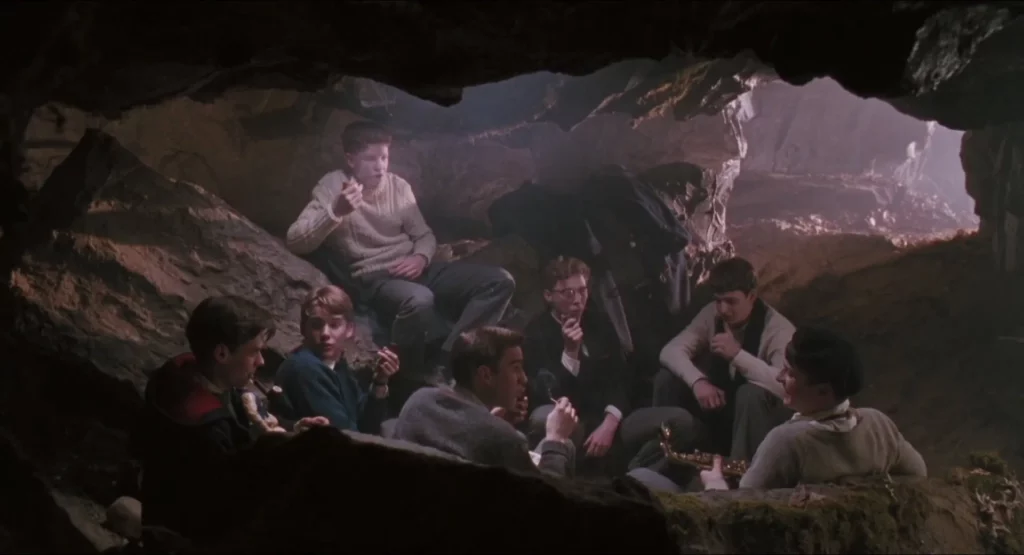
Keating’s unorthodox teaching methods contrast sharply with the rigid system. He wants students to question, to think for themselves, not just to succeed in a system designed to format them and crush their creativity.
This may be one of the greatest misconceptions about school: while students learn to read and write, they seldom learn to think independently — a skill that should be the primary purpose of education. Like Keating, the goal should be to ignite a spark, to let it grow into something unique and extraordinary.
Instead, modern schools often focus on teaching children to conform to societal expectations, which has its benefits, as fitting into a shared narrative is crucial for socialization. However, once students, like those in Dead Poets Society, are mature enough to navigate between social circles, it’s time for them to break free.
The director argued that the students were “too young” to be influenced by the idea of embracing their true selves and revealing their authentic identity and inherent worth to the world. But in reality, it was the perfect time—after school, it would be too late because of responsibilities.
Now imagine one of the most prestigious schools, where the top student decides to pursue an acting career instead of a doctorate. From the institution’s perspective, this would be incredibly disruptive to its image—almost as if true self-actualization were found outside its walls.
This is exactly what happened in my class: among the top five students, none followed the pre-established path. Probably because, throughout their lives, they had experienced enough success or encouragement related to their individuality to dare to follow their own path.
And in doing so, they revealed a deeper truth: the school, in essence, didn’t provide anything truly valuable, outside of a social experience and some basics. Because what’s most valuable can’t be taught in the traditional sense, it is a process of personal research and discovery. Like Mr. Keating, the role of a true teacher isn’t to fill minds, but to ignite a fire that’s already there and let it follow its own path.
5. Parental Expectations vs. Self-Realization
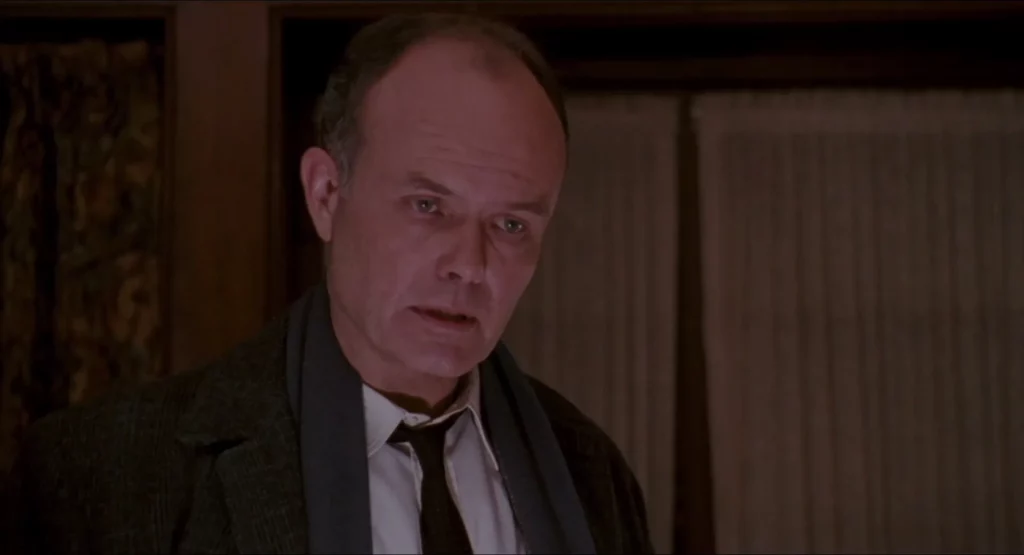
Neil’s story is a tragic reminder of what happens when young people are not allowed to pursue their passions. His father’s controlling grip represents the oppressive force of dreams unfulfilled.
Neil’s father rejects Neil’s individuality and imposes his own vision of life upon him. This reflects a traditionalist mindset — one that fails to recognize that the purpose of the younger generation is to evolve culture in response to a world that has changed since their time and if there still wisdom in tradition, its the job of the newer generations to select what has to survive and what has to let go because they are the one who can confront the new version of reality where old manners could be synonym with failure.
Trapped by his own insecurities, Neil’s father seeks validation through social success and forces Neil to follow a predetermined path, suffocating his individuality and identity along the way. It’s as if Neil were a fish forced to climb a tree; it’s not something he can do without feeling an inner decay.
I believe the most important truth lies here: people don’t choose what they like, whether it’s taste or what resonates with their sense of meaning and admiration. It’s a force that is beyond their control and no amount of education or brainwash will change this compass.
6. Courage and Rebellion
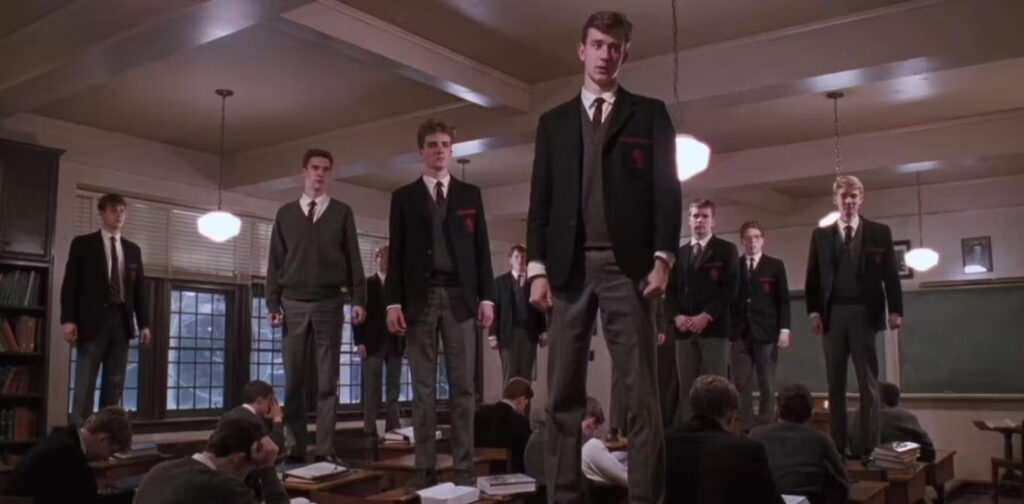
Standing on a desk, tearing out textbook pages, reviving the Dead Poets Society—these are symbolic acts of rebellion and courage. They’re small revolutions that say, I will not be silenced.
The scene where people walking ultimately leads to homogenization is a powerful metaphor, highlighting the force of conformity in humans, who, as social animals, are driven by a need for security and sameness. Any disruptive element is seen as a threat to overall harmony.
To be genuine and committed to truth, one must learn to let go of outcomes and the expectations of others. Telling your truth is no different from embarking on your own journey and reclaiming your destiny — they are one and the same.
Authenticity and morality are also nearly inseparable, because morality requires, above all, not lying—to oneself or to others. This was clearly demonstrated by the piece of paper the Dead Poets Society had to sign, lying in order to protect themselves at the expense of Professor Keating. By standing on that table, they, in a way, preserved their moral integrity.
7. The danger of Rebellion
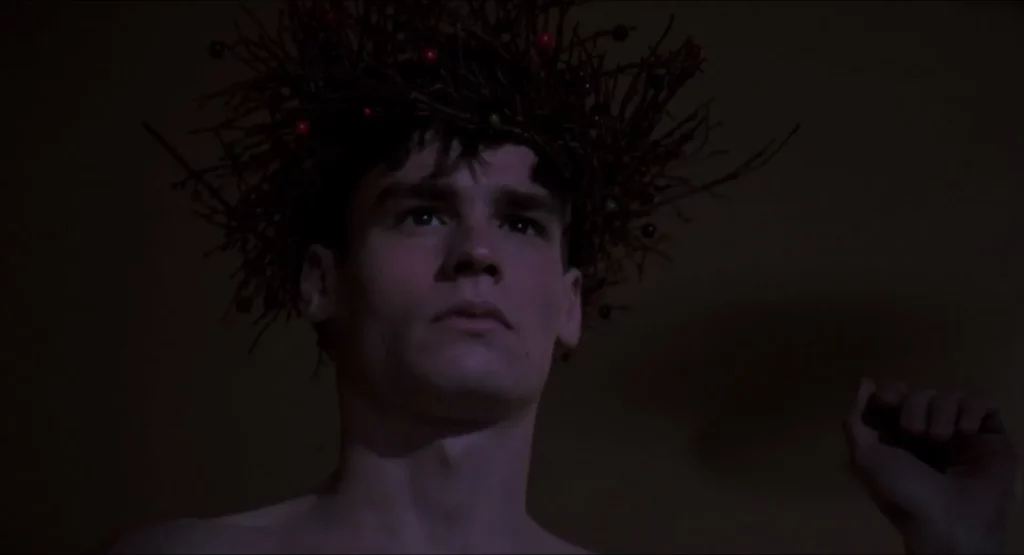
To truly exist is to have the courage to live authentically, to align our actions with the deepest truths of our soul. However, this act of rebellion is not without its risks. As illustrated in the film, living authentically often means challenging the norms, which can lead to being rejected by the very institutions and groups that depend on conformity to function.
In modern capitalist society, conformity plays a vital role — the system requires a compliant workforce for it to operate smoothly. Not everyone has the courage or the opportunity to live according to their own values. Without this individual sacrifice or excessive overconsumption, the state cannot generate revenue or develop.
Most people are compelled to follow the predetermined paths laid out for them, driven by the pressures of societal expectations, economic survival, and the fear of exclusion. The tension between individual freedom and societal conformity is a constant struggle, and many will choose the safety of the familiar over the uncertainty of true self-expression.
Society relies on the stability of most of its components to ensure continuity — without it, everything would risk being erased and rebuilt every few decades. That’s why individualism often carries a certain image of irresponsibility. Rebellion then becomes both a deeply responsible act — toward oneself, toward truth, and toward what we can authentically contribute to society — and, at the same time, a form of irresponsibility in the eyes of established social norms that exist to protect the system’s structure.
Its almost what Nieztsche would describe as slave morality an invisible duty to deny one true wishes to fit with herd. The only difference in reality is that wealthy young people read and understand Nietzsche, Schopenhauer or Sartre at the age of 12.
8. The danger of Conformity
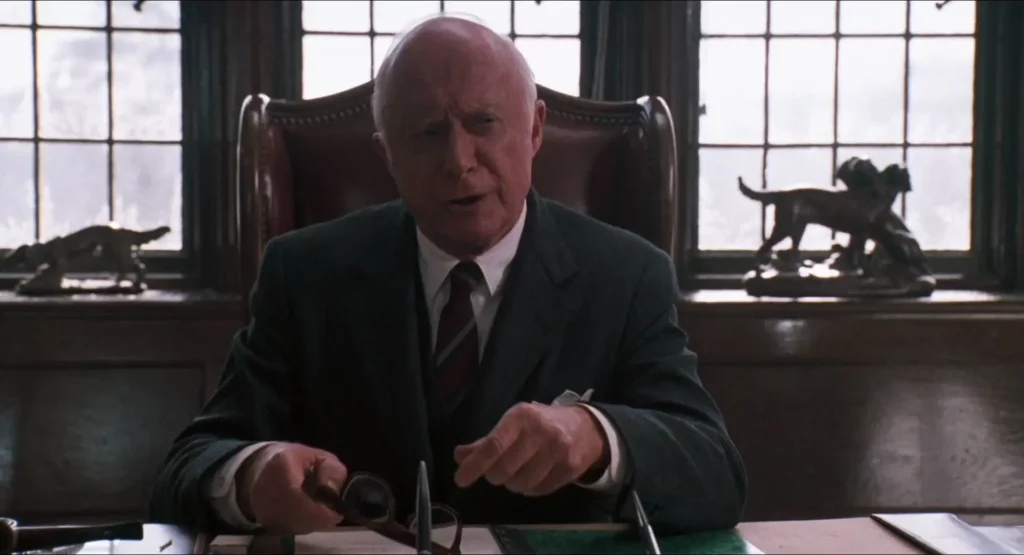
It’s actually quite simple: if conformity were the only path, nothing would exist—not even within our conformist society. That’s because everything original, everything of value, was born from someone who dared to step off the beaten path. Even the very institutions that now promote conformity, like schools, were once the creation of someone who rebelled against the norm by creating something superior or different.
I believe that for any system to sustain itself, a large portion of the population must remain conformist. Only a small number will have the luck, the courage to rebel and push the boundaries needed for progress. Perhaps this has always been the case—an enduring truth since the dawn of civilization.
The aim is to provide the resources and strength to those capable of hearing—and daring to follow—their inner voice, which they will do anyway not to betray themselves.
Conclusion
Not every student has the same kind of fire. But every human being likely has a fire — a unique inner spark, a sense of meaning, a drive toward something that feels true to them. The problem is, in many people, that fire is either never recognized, or it’s extinguished early by fear, pressure, or conditioning.
Some are naturally more inclined to follow, to find comfort in structure, tradition, or external validation. And that’s not necessarily a failure — the system, as perfect or flawed as it is, needs people who function within it for things to run. But that doesn’t mean these individuals are “meant” to be conformists — it just means they didn’t get the opportunity, courage, or space to explore their fire.
So maybe the fire is universal… but its expression isn’t. It requires a combination of circumstances: encouragement, adversity, rebellion, and sometimes even a moment of grace. And for many, that moment never comes.
The real tragedy isn’t that some conform — it’s that many never even get the chance to choose. Because at the end of the day we need both for society to exist and progress and this has to be decided by equality of opportunity.
One question remains: why, despite the rise of personal computers, vast databases, and even AI, has the school system remained largely unchanged?


GIPHY App Key not set. Please check settings